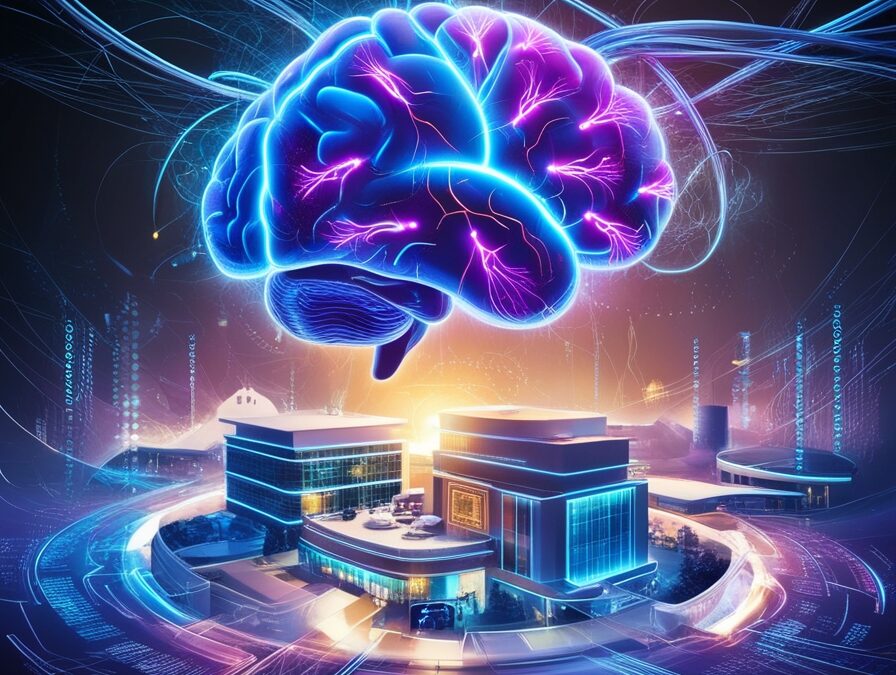As an AI speaker and author, I am constantly fascinated by the transformative potential of artificial intelligence (AI) in various industries, and healthcare is no exception. The integration of AI into healthcare delivery systems has brought about significant advancements, yet it also poses several challenges that we must address to fully realize its potential. Let’s explore some key insights from the recent preprint by Muhammad Aftab and colleagues, which provides a comprehensive overview of AI’s impact on healthcare.
AI Advancements in Healthcare
1. Diagnostic Accuracy:
AI’s ability to analyze vast amounts of medical data with precision is revolutionizing disease diagnosis. Machine learning (ML) algorithms enhance the accuracy and speed of disease detection, particularly in fields like oncology and cardiology. For instance, Google’s DeepMind has developed a model that diagnoses 50 common ophthalmic diseases with high accuracy, significantly aiding early detection and treatment.
2. Robotic Surgery:
AI-driven robotic-assisted surgery is enhancing surgical precision and reducing recovery times. Robots can perform minimally invasive surgeries with higher accuracy than human surgeons, as evidenced by studies comparing robot-assisted rectal resection with traditional laparoscopic surgery. The former results in less blood loss, fewer infections, and shorter hospital stays.
3. Personalized Medicine:
AI is making strides in personalized medicine by analyzing genomic data and other biomarkers to tailor treatment plans. This not only improves patient outcomes but also reduces treatment costs and times. AI-driven systems can continuously monitor and adjust treatment plans based on real-time patient data, leading to more effective healthcare delivery.
4. Drug Development:
AI accelerates drug discovery by analyzing chemical data and predicting the efficacy and safety of new compounds. Pharmaceutical companies are leveraging AI to identify potential drug targets, reducing the time and cost associated with bringing new drugs to market. AI’s role in this domain is particularly crucial in developing treatments for complex diseases like cancer.
5. Patient Care and Monitoring:
AI-powered wearable devices and remote monitoring systems are enhancing patient care by providing continuous health data to healthcare providers. This technology allows for early detection of health issues and reduces the need for frequent in-person visits, especially beneficial for patients in remote areas.
Challenges in AI Healthcare Integration
Despite these advancements, several challenges hinder the full integration of AI into healthcare:
1. Data Quality and Standardization:
The reliability and consistency of medical data are critical for AI algorithms to function effectively. Inconsistent data quality can lead to inaccurate diagnoses and treatments. There is a need for standardized data collection and processing methods to ensure the accuracy and reliability of AI systems.
2. Skill Shortage:
There is a significant shortage of professionals skilled in both AI and clinical applications. Bridging this gap requires reforming educational models to train interdisciplinary talent and enhancing the AI literacy of healthcare workers.
3. Ethical and Privacy Concerns:
AI systems must navigate complex ethical and privacy issues, including patient consent, data security, and algorithmic transparency. Ensuring that patients’ data is protected and that AI decisions are explainable and fair is paramount.
4. Regulatory Frameworks:
The rapid pace of AI development often outstrips existing regulatory frameworks. Governments and regulatory bodies need to establish comprehensive policies that ensure the safe and effective deployment of AI technologies in healthcare while fostering innovation.
5. Cost of Implementation:
The high costs associated with AI technologies, particularly robotic systems, can be a barrier to widespread adoption. While these technologies can lead to long-term savings through improved efficiency and outcomes, the initial investment is substantial.
Final Thoughts
The integration of AI into healthcare is transforming the industry, offering unprecedented opportunities to enhance diagnostic accuracy, surgical precision, personalized treatment, and patient care. However, addressing the challenges of data quality, skill shortages, ethical considerations, regulatory frameworks, and implementation costs is essential for realizing AI’s full potential in healthcare. By fostering collaboration among technologists, healthcare professionals, policymakers, and ethicists, we can navigate these challenges and ensure that AI-driven innovations continue to improve healthcare delivery and patient outcomes.
—
References
2. Topol, E. J. (2019). High-performance medicine: the convergence of human and artificial intelligence. Nature Medicine, 25(1), 44-56.
3. Rajpurkar, P., Chen, E., Banerjee, O., & Topol, E. J. (2022). AI in health and medicine. Nature Medicine, 28(1), 31-38.
4. Haick, H., & Tang, N. (2021). Artificial intelligence in medical sensors for clinical decisions. ACS Nano, 15(3), 3557-3567.
5. Kanagasingam, Y., Xiao, D., Vignarajan, J., Preetham, A., Tay-Kearney, M.-L., & Mehrotra, A. (2018). Evaluation of artificial intelligence–based grading of diabetic retinopathy in primary care. JAMA Network Open, 1(5), e182665.







